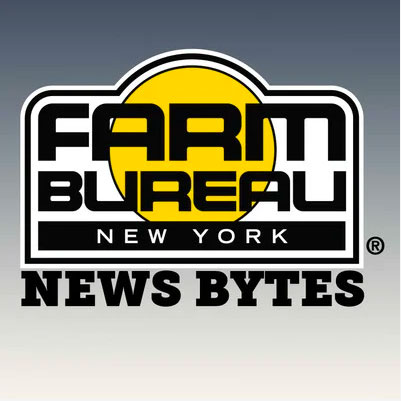Statement on Farm Labor Legislation
For Immediate Release:
May 23, 2017
The statement below should be attributed to NYFB President David Fisher:
“Farmworkers are an important part of agriculture. Farmers across the state depend on their employees to help with planting and harvest and to care for animals. It is a valuable partnership that offers benefits to both farmers and farmworkers alike, but the omnibus farmworker bill will only diminish opportunities for employees as well reduce the number of farms producing food in this state.
In 2015, farm income fell by $1 billion according to National Agricultural Statistics Service. Results for 2016 are expected to be even tougher because of sustained low milk and commodity prices. For example, the newly released Farm Credit East Northeast Dairy Summary found dairy farmer net earnings for 2016 were only $15 per cow.
Couple the loss of income with climbing labor costs related to the increase in the minimum wage, and farms are under extreme fiscal stress. A separate Farm Credit East report conducted last November expressed how much worse it could get if overtime is factored into the equation with a $12.50 minimum wage. The overtime report estimates a decline in gross farm sales in excess of $2 billion or nearly half of overall farm income that would be required to cover the anticipated labor costs. The result, according to the FCE report, would be “a significant decline in agriculturally-related employment in New York State.” Farms in this state cannot absorb that kind of loss and remain competitive against farms in other states and countries where labor costs are significantly lower.
The farmworker labor bill also ignores the unique nature of agricultural work. Mother Nature dictates the time clock. Yes, there are long days spent picking fruit in the summer heat. However, rain can also keep farmers out of the fields. To make up for the lost time on one day, farmers and their employees may have to work more hours the next day to get ripe food from the farm to market. Limiting hours or having workers walk off the job because of a strike are not feasible when dealing with perishable food and animals that need to be milked and cared for.
New York’s family farms understand the importance of providing safe working conditions and competitive wages for all of their employees. It is a necessity to have a stable workforce and maintain quality workers. On average, farmworkers earn $12.63/hour in New York according to northeast agriculture labor rates.
It is also important to note a 2016 Cornell survey of Hispanic dairy workers in this state that found employees routinely request to work more hours they have been assigned. That same survey found in addition to their wages, most farmworkers receive free housing and utilities and nearly half receive free wi-fi. In addition, nearly 65% receive employer-paid bonuses. Extra benefits sited include paid vacations, garden space and employer-paid beef and transportation. All of these extra benefits add significantly to the salaries that farmworkers earn. There were also overwhelming positive responses in the survey about working conditions. The mere suggestion otherwise may fit the activists’ narrative, but is not a fair and accurate portrayal of life that was documented on farms in this state.
There are commonalities on issues that New York Farm Bureau and labor advocates can work together on to help farmworkers. Immigration reform is at the top of that list. It will be beneficial for farmworkers, their families and the state’s family farms to bring valuable employees out of the shadows. It should also be noted that New York Farm Bureau is supportive of farmworkers having the voluntary choice to take a day off every week. This protects seasonal workers, who may only work a few months out of the year, to earn as much income as they choose.
Agriculture is important to rural economies as well to people in urban areas that value access to local food. Should more farms be driven out of business by additional regulations that place New York agriculture at a more extreme competitive disadvantage, the results will be profound. Fewer jobs and less local food would undoubtedly be the legacy of this legislation.”
-30-
New York Farm Bureau is the State’s largest agricultural lobbying/trade organization. Its members and the public know the organization as “The Voice of New York Agriculture.” New York Farm Bureau is dedicated to solving the economic and public policy issues challenging the agricultural community.



